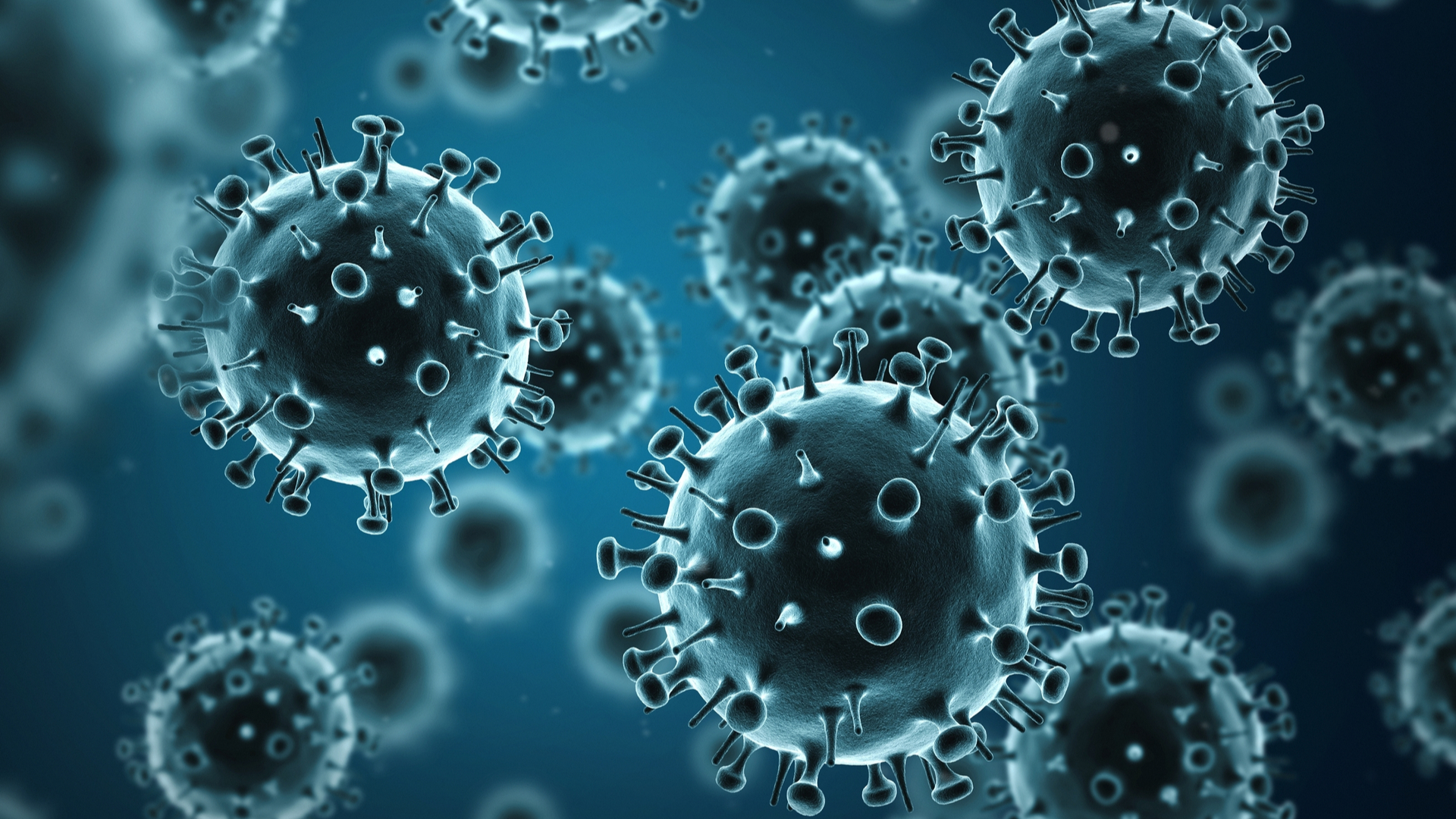What are antibodies?
Antibodies are small proteins produced by the immune system that attack a virus and neutralise it so it cannot be spread. Antibodies emerge during an infection and peak 28 days afterwards. They then remain in the bloodstream for months, continuing to provide a level of protection.
What is antibody testing?
One of the key factors in stopping the spread of COVID-19 across the globe is testing. Around the world, PCR testing is being used extensively to quickly identify and isolate those who currently have the virus. The test involves taking a swab of the nose and the back of the throat. This type of testing is paramount in calculating accurate infection rates – data that is critical for getting public safety measures right – and to enable infected people to prevent further spread of the virus.
Antibody testing is different, as its purpose is to reveal whether a person has already been exposed to the virus. This is especially important for COVID-19 as we know it is possible for a person to have had the virus, but have shown no symptoms. Data from antibody tests can be used to understand how the virus is spreading, and how it affects different regions and populations.
Testing for antibodies requires a blood sample.
Why is antibody testing important?
Antibody testing could help health authorities quickly find out who has contracted COVID-19 in the past.
With the development of additional testing methods, health planners can build up a more accurate history of past infections, helping to provide a more accurate picture of the number of cases in a population.
Who is involved in this research from the University of Reading?
Dr Al Edwards
Dr Edwards is a biomedical technology expert and researcher at the University of Reading, who specialises in developing new methods of testing for viruses. His work over the last decade has focused on developing tests which improve clinical diagnostics for a range of medical conditions.
Professor Sue Walker
Professor Sue Walker, from our Department of Typography & Graphic Communication, is a specialist in information design, including verbal and pictorial instructional text. Her research interests include the design of information about antimicrobial resistance for use in community pharmacies, and science communication for children.
Professor Ian Jones
Professor Ian Jones is Professor of Virology at the University of Reading. His research interests include the stimulation of influenza antibody titres, the structure and function of relationships of virus structural proteins, and rapid diagnostics and expression technologies.
Dr Sarah Needs – postdoctoral research associate in microfluidic antimicrobial resistance testing.
Dr Sophie Jegouic – postdoctoral research associate.
Dr Josefina Bravo – postdoctoral information design researcher, working on designing clearer instructions for home testing kits.
Gemma Little – Typography and Graphic Communication PhD student, working on developing an online survey.
What will the research involve?
Building on our expertise and previous work to develop home diagnostic kits, this research project is investigating how COVID-19 antibody testing could be done safely and accurately at home using current tests (such as the Roche and Abbott tests being used by the UK’s national testing programmes), and whether the results from home testing are reliable enough. We want to make sure it is as easy as possible to avoid mistakes, because incorrect results could be catastrophic.
What is serology?
Serology is the scientific study of serum and other body fluids. In practice, the term usually refers to the diagnostic identification of antibodies in the serum. Serological tests are diagnostic methods that are used to identify antibodies and antigens in a patient’s sample.
What will the research entail?
Antibody testing requires a blood sample. People sometimes find it difficult to take a blood sample on their own, and so the team will be investigating the optimum way to ensure that everyone conducting these tests can take their own samples correctly. This will ensure that the results from the test will be reliable.
Our researchers will make ‘model’ test kits that closely match the designs already in use for other medical conditions that already use portable testing. This type of test gives the user a visual result, with different lines to show positive or negative, similar to a pregnancy test. These can be referred to as home testing kits.
Our researchers will compare the effectiveness of these home testing kits against home sampling kits – where a sample is collected at home but then sent to a lab for testing. Conducting this research will allow us to weigh up the pros and cons of the respective approaches, and provide an evidence base as to where resources are best deployed going forwards.
Our lab has a lot of experience of creating tests and will 3D print the test kit ‘models’. This enables us to rapidly change the test design to make it as easy to use as possible, and we can also model new test products as they appear on the market to check they are safe for home use.
Following good practice and expertise in information design, we will investigate how easy participants find it to follow the instructions provided with the test kits, and whether offering video tutorials alongside printed instructions is beneficial.
Next we will investigate the optimum way for participants to collect blood samples at home, which can then be posted to a laboratory to conduct a COVID-19 antibody test.
This different method of testing, known as dry blood spot testing, is currently favoured by some public health experts because analysing the blood samples in a lab is thought to be more accurate than the results from rapid test kits. We intend to find out if it is easier for participants to engage in this testing method versus using the rapid portable testing kits. We will also assess whether blood spot tests give more accurate results.
Blood spot tests require the participant to prick their fingertip and add a small blood spot to a sampling pad. The dry blood sample will then be returned to our laboratory at Whiteknights campus for analysis.
How will donations help?
This study has already begun, but with some extra help we know we could make it even better, which is why we have launched this appeal.
We need funds to cover things like our 3D printing costs, because in this study we are making our own mock testing kits and developing video tutorials to go alongside them.
- £100 will fund the study for one participant
- £300 will fund the 3D printer materials for one month
- £1,000 will pay for one month’s supply of laboratory consumables including Personal Protective
- Equipment (PPE) for our research team
- £5,000 will allow us to spend one month investigating a variety of styles of testing kit, and develop video resources to make home testing easier and safer.
What does volunteering entail?
We are looking for a pool of volunteers to work with on three different elements.
We would like people to take part in an online survey about their experiences and views of using home testing kits for any medical needs, or having tests at a hospital or GP surgery. Examples of home testing include a pregnancy test, measuring your own blood glucose levels or taking your own blood pressure. You may have been to a hospital or GP surgery for a blood test, or for a diagnostic test.
This will enable us find out how people respond to various devices and methods of instruction.
We would like people to work with University of Reading researchers to evaluate a variety of COVID-19 home test systems using model testing kits, and help develop better instructions to make testing as easy and safe as possible.
We have ideas about what will work, but we need to work with volunteers to test these hypotheses and refine our designs.
We would like people to donate a small sample of blood to the University of Reading for use in COVID-19 testing research.
What will happen to this blood donation?
Further details will be provided before you fully sign-up for the blood test project – you can find out more details in the project information leaflet that will be provided to people who indicate they are willing to participate. The project requirements are changing quickly as the science develops and as we discover more. But the simple process will be that a volunteer provides a small blood sample that we will test in the lab with an experimental antibody test. Unfortunately we aren’t able to provide a test result back to the volunteer because we don’t yet know how reliable these experimental tests are. The volunteer blood will be used to check if a particular method or process affects the antibody test reliability. For example, if we transport the sample in a new way (for example, to allow people to post their blood sample to a lab) does it degrade the antibody? We are also interested in antibody responses to different components of the virus.
Will you work with everyone who volunteers?
We would expect the vast majority of volunteers to help us with the online survey. We hope that lots of people will sign-up, but we will not be able to work with every volunteer in phases two and three, and do not want to waste anybody’s time.
Do I have to pick one element of volunteering to help with?
No. We are delighted if people volunteer for one, two or all three phases.
Are there any other restrictions?
You must be aged 18 or over and a current UK resident.
When will you contact people about phases two and three?
At the moment it is very hard to say. It depends on how much people donate to enable this research to progress, but please do sign-up and we will be in touch when we can.
Is this work still necessary as the government’s response continues to accelerate?
We believe that there is an enormous amount of research still needed in many different areas as we are still a long way from solving this current pandemic. The continued expansion of a wide range of research and innovation programmes by the government confirms this need for continued research and innovation. The government’s response is important, and the situation is progressing very fast, but some of the central testing services still need refining considerably as we move from ‘crisis response’ towards full recovery. We have already responded to government ’calls to action‘ and more requests for innovation are arising, which we are monitoring closely to ensure that what we do at Reading does not replicate efforts elsewhere. We have seen this with the central swab testing programme for COVID-19: the national testing service has expanded at unprecedented scale, yet there remains room for improvement with certain gaps remaining that can be filled with novel and innovative developments.
How else is the University of Reading responding to COVID-19?
We are working closely with the Royal Berkshire Hospital and the Royal Berkshire NHS Foundation Trust to support them in as many ways as we can, from basic provision of staff car parking facilities and overnight accommodation, to more complex assistance with the procurement and supply of equipment such as webcams, PPE and 3D printers. A number of the University’s staff have volunteered and are undertaking hands-on support work within the hospital and the local community.
More and regularly updated details can be found by searching the hashtag #WeAreTogether.
Where can I find more information on COVID-19?
You can find detailed information about COVID-19, including the potential symptoms and what you should do if you believe you may have the virus online, or you can speak to the NHS by dialling 111.






